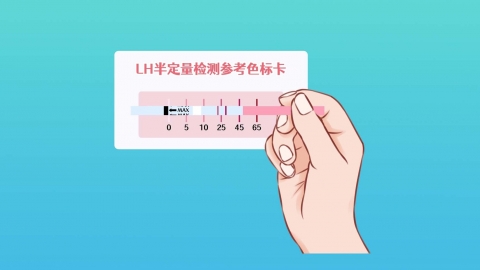What causes abdominal pain during ovulation?
Generally, the main causes of abdominal pain during ovulation include follicular rupture irritation, hormonal changes, pelvic inflammatory disease, endometriosis, and ovarian cyst torsion. If discomfort occurs, it is recommended to seek timely treatment at a reputable hospital. Detailed analysis is as follows:
1. Follicular Rupture Irritation
During ovulation, the follicle ruptures and a small amount of follicular fluid flows into the pelvic cavity, irritating the pelvic peritoneum and causing mild abdominal pain, often manifesting as a dull ache or a feeling of pressure on one side of the lower abdomen, lasting for 1-2 days. Applying heat to the lower abdomen can relieve the discomfort. During this time, strenuous exercise should be avoided, and a bland diet should be chosen to reduce pelvic irritation. Most symptoms will disappear on their own.
2. Hormonal Changes
Fluctuations in estrogen and progesterone levels during ovulation can cause slight contractions of the uterine smooth muscle, pulling on surrounding tissues and causing abdominal pain. Maintaining a regular sleep schedule and avoiding staying up late can help stabilize hormone levels. When abdominal pain is evident, medications such as ibuprofen sustained-release capsules, acetaminophen tablets, or naproxen sodium tablets may be taken under a doctor's guidance to relieve pain.

3. Pelvic Inflammatory Disease
Inflammation caused by bacterial infection in the pelvic region can worsen during ovulation due to pelvic congestion, leading to intensified abdominal pain, often accompanied by increased vaginal discharge and an unpleasant odor. Medications such as cefixime dispersible tablets, metronidazole tablets, or levofloxacin hydrochloride capsules should be taken under a doctor's guidance to eliminate pathogens and control inflammation. Additionally, maintaining external genital hygiene and avoiding sexual intercourse during menstruation are important.
4. Endometriosis
Endometrial tissue growing outside the uterus may become congested and swollen during ovulation due to hormonal effects, irritating surrounding tissues and causing abdominal pain. The pain may worsen with the menstrual cycle. Under a doctor's guidance, medications such as drospirenone and ethinyl estradiol tablets, gestrinone capsules, or ibuprofen capsules may be taken to inhibit lesion growth and alleviate pain. Severe cases may require laparoscopic removal of the ectopic lesions.
5. Ovarian Cyst Torsion
For patients with ovarian cysts, positional changes of the ovary during ovulation may lead to torsion of the cyst's stalk, causing sudden severe abdominal pain accompanied by nausea and vomiting. Immediate medical attention is required. After diagnosis, detorsion of the ovarian cyst is necessary. If the cyst has necrotized, removal of the affected ovary may be required. Postoperative treatment should follow medical advice to take medications such as cefuroxime axetil tablets, azithromycin dispersible tablets, or metronidazole capsules to prevent infection.
In daily life, it is important to maintain menstrual hygiene and avoid unclean sexual activity. Strenuous exercise and heavy physical labor should be avoided during ovulation to reduce abdominal strain. Regular gynecological examinations should be conducted to detect abnormalities in the pelvic or ovarian regions promptly. Immediate medical attention is necessary if abdominal pain worsens or is accompanied by fever or vaginal bleeding to avoid delaying treatment.








